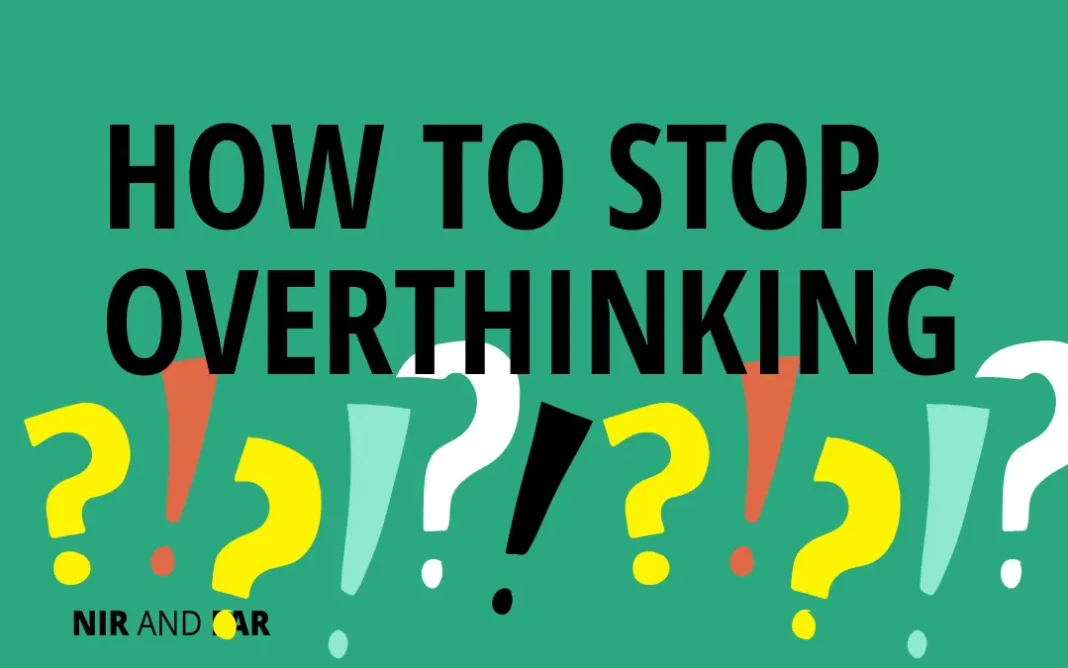At some point in our lives, we all find ourselves trapped in an endless loop of thoughts. Perhaps you’ve replayed a heated argument in your head, agonized over a poor decision, or felt haunted by something someone said. This kind of mental spiraling is common — and in fact, perfectly human. The ability to reflect on our actions and emotions is part of what makes us empathetic and self-aware. But when reflection crosses a certain threshold, it becomes something far more harmful: overthinking.
The Hidden Dangers of Rumination
Overthinking, often referred to in psychological circles as rumination, is the tendency to dwell on negative experiences or perceived shortcomings. Unlike constructive self-reflection, which helps us learn and grow, rumination traps us in a cycle of self-criticism and worry. It’s the voice inside our heads that keeps asking, “Why did I say that?” or “Why can’t I handle things better?”
While a certain amount of analysis can be helpful, excessive rumination does the opposite. It can cloud our judgment, distort our perceptions, and even lead to serious mental health issues like anxiety and depression. Research has shown that those who ruminate excessively often struggle with decision-making, experience higher levels of stress, and have greater difficulty maintaining healthy relationships. The cost isn’t just emotional — rumination can steal time, rob us of sleep, and diminish our overall quality of life.
In today’s fast-paced, distraction-filled world, our minds are constantly bombarded with information and stimuli, making it even easier to fall into the rumination trap. Fortunately, science is uncovering techniques to help us step back from this mental quicksand and regain control.

Seeing Yourself from the Outside: The Power of Illeism
One particularly intriguing method for breaking free from overthinking is something known as illeism — the act of referring to oneself in the third person. Though it might sound unusual, illeism has deep roots, dating back to the philosophies of Ancient Greece. Surprisingly, this age-old practice is now backed by modern psychological research as a highly effective tool for emotional regulation and clearer decision-making.
At the core of illeism is the concept of self-distancing — essentially, creating a mental space between ourselves and our problems. When we think or talk about ourselves in the third person, we remove some of the emotional weight from the situation. This allows us to observe our thoughts with greater objectivity, much like we would when offering advice to a friend.
This phenomenon ties into what psychologists call Solomon’s paradox — the idea that we are often far better at solving other people’s problems than our own. By using illeism, we essentially trick our brains into applying that same external wisdom to our internal struggles.
Scientific Evidence: Wisdom Through Perspective
Psychologist Igor Grossmann of the University of Waterloo has conducted extensive research on the effects of illeism. In one notable study, nearly 300 participants were asked to keep daily journals describing recent conflicts or stressful situations. Half of the participants wrote about their experiences in the first person, while the other half used the third person.
After a month, those who practiced illeism displayed significantly greater improvements in what Grossmann defines as “wise reasoning” — traits such as intellectual humility, openness to different perspectives, and the ability to recognize uncertainty. In other words, distancing themselves from their problems not only reduced rumination but also fostered emotional intelligence and personal growth.
Grossmann’s work suggests that wisdom isn’t just an innate trait; it can be cultivated through daily practice. This offers hope for anyone struggling with overthinking — wisdom is not a fixed quality, but a skill that can be developed.

Practical Ways to Apply Illeism
So how can we incorporate illeism into our daily lives to combat rumination? Here are a few simple techniques:
1. Third-Person Journaling
Set aside 10 to 15 minutes each day to write about recent conflicts or decisions in the third person. For example, instead of writing, “I was frustrated with my coworker,” write, “John was frustrated with his coworker.” This slight change in language can shift your perspective and reduce emotional intensity.
2. Self-Coaching Conversations
When you’re caught in a swirl of negative thoughts, try talking to yourself as if you were a coach or therapist. You might say, “Sarah is feeling overwhelmed right now, but she’s handled tough situations before and can work through this one too.”
3. Mirror Technique
Take it a step further by looking in the mirror and addressing yourself in the third person. This physical act of creating distance can make the exercise feel more real and impactful.
4. Mental Visualization
If writing or speaking feels awkward, simply visualize yourself from a third-person perspective. Picture yourself as an outside observer, and consider how you would advise someone else in your situation.

By practicing these methods regularly, you not only weaken the grip of rumination but also build resilience and emotional clarity. Over time, this approach can help you reclaim your attention and focus — essential skills in an increasingly distracting world.
Becoming Indistractable
At its core, overcoming overthinking is about regaining control over where we place our attention. When we learn to step outside ourselves, view our problems with a cooler head, and apply wise reasoning, we create the mental space needed to focus on what truly matters. In doing so, we become more present, productive, and emotionally balanced.
In a world overflowing with noise and endless mental triggers, developing this skill isn’t just beneficial — it may very well be one of the most important tools for navigating modern life. By breaking the cycle of rumination, we open the door to greater well-being, stronger relationships, and a clearer path forward.





